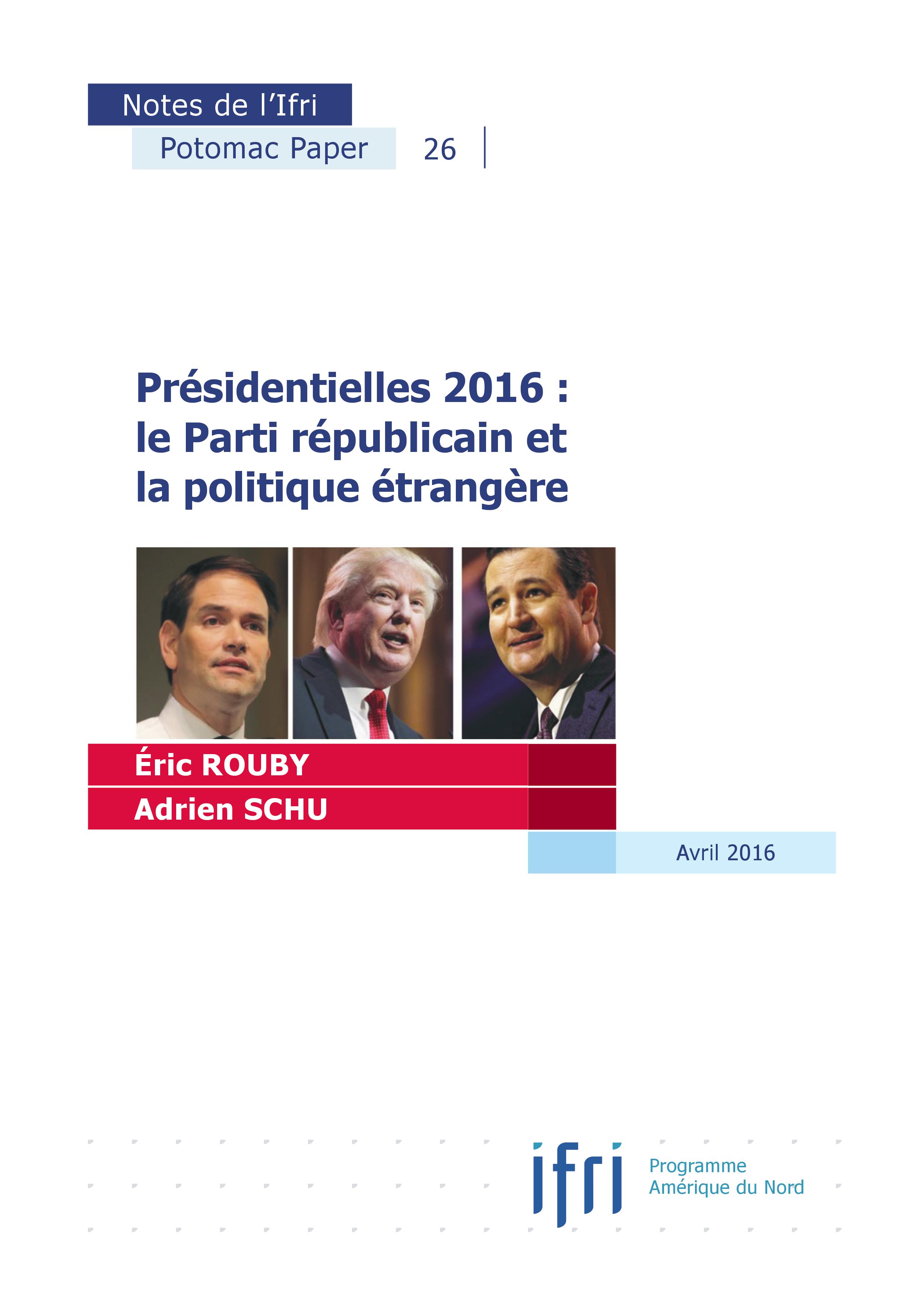Présidentielles 2016: le Parti républicain et la politique étrangère

Three Republican presidential candidates have proposed a foreign policy agenda worthy of examination. Marco Rubio (who withdrew from the race on 15 March 2016) and Ted Cruz present well-defined political projects pertaining to different traditions of American foreign policy theory. Donald Trump’s approach is less clear-cut but also less traditional, between isolationism and profitability.

Marco Rubio’s « democratic realism » is built around strong support to American power and values (market-oriented economy, human rights and democracy). The United States must defend democracy under all circumstances, although U.S. military interventions should be limited to situations of popular upheaval and threats to U.S. national security. Rubio therefore approves the U.S. military interventions in the Middle East during and after the Arab Springs. Regarding Syria, he is in favor of fighting against both President Assad and the Islamic State.
For Ted Cruz and his « Jacksonian realism », the country’s primary objective is to guarantee national security rather than promoting moral values. Exporting democracy does not work. Therefore, the United States should support authoritarian regimes if they act as a bulwark against terrorism and regional instability. Cruz takes the example of Egypt and Libya, where the departure of the dictators impacted US security negatively. Accordingly, he recommends that Assad should stay in power.
Foreign policy is not a central issue for Donald Trump, who did not unveil his team of advisers on this matter until the end of March. His proposals alternate between isolationism and military adventurism and often lack consistency. Nevertheless, he has stated repeatedly that the U.S. should not necessarily act as a world leader, and has no moral obligations vis-à-vis the rest of the world. According to the New York businessman, the United States should never lose money in its commitments abroad. The wars in Iraq and Afghanistan were very costly and did not bring any concrete results: they were a mistake. Allied countries benefiting from U.S. military presence, such as Japan, Germany and South Korea, should bear the cost of these deployments.
This content is available in French : "Présidentielles 2016 : le Parti républicain et la politique étrangère".






